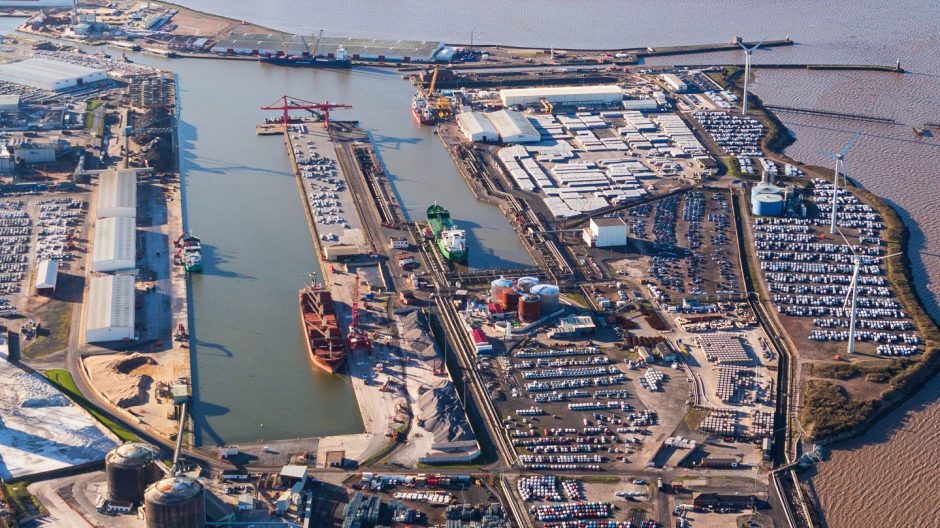
The UK is open to private sector investment in the still nascent carbon, capture and storage (CCS) industry, minister for energy security and net zero Philip Hunt told investors this week.
Addressing executives at the House of Lords on Tuesday, Hunt said his department had identified significant potential to grow the UK economy through the market for carbon capture and sequestration.
“[In] storage where again, we see great potential,” Hunt said. “We’ve got two tranches which are going to be operative around 2028 and beyond.
“We’ve announced a considerable amount of public investment to help that on its way and in the North Sea, of course, we have huge asset in terms of being able to deposit carbon and see this as being one of the ways in which we can move as quickly as possible to Net Zero – which is so important to ourselves in this country and to many other countries as well.”
Hunt, who was appointed as minister of state for the Department of Energy Security and Net Zero (DESNZ) in July, indicated that the country is doubling down on the last government’s CCS plan and seeking to mobilise private investment in the industry.
His words indicate a commitment to the strategy first instigated by the former Conservative party government to set up so-called ‘decarbonisation’ clusters to capture carbon from gas plants.
“It’s a great way to grow our economy; it’s a great way to grow supply chain,” Hunt told investors, adding: “I hope you’ll take from my message that you will see that the energy sector has a huge amount to offer over the next few years.”
New era
The Labour government is betting on growing the economy while simultaneously meeting 2050 emissions-reduction targets by investing in gas and CCS side by side.
This month, Ed Miliband hailed a “new era” of industry post coal, which includes, according to his vision, investment in carbon capture clusters in the industrial north.
In the same week that the UK became the first industrialised nation to end the use of coal for power generation, DESNZ said the public sector would invest approximately £21.7 billion in CCS, with two clusters expected to create 4,000 immediate jobs.
The UK government predicts that up to 200 years of emissions could be captured by CCS projects in these clusters, which are together expected to receive £8 billion of private investment.
These northern clusters are due to start sequestering waste CO2 from industrial power plants in 2028, with the government’s 2030 target to decarbonise the power system just around the corner.
The first CCS projects in the UK to be developed at scale will be at Teesside and Merseyside under ‘track one’ of the former Conservative government’s strategy.
Two clusters, HyNet and the East Coast Cluster – a carbon capture project within the Net Zero Teesside decarbonisation project – were both included in the first tranche of the former administration’s strategy.
Teesside will involve the carbon sequestration of waste flue gases from new gas plants that will be built by a consortium of companies led by BP, called NTZ Power.
The latest cash injection includes a slew of carbon capture projects alongside the UK’s first slated large-scale hydrogen production plant, which will be set up by HyNet in the north-west of England, with part of the funding announced this month.
Plans for the HyNet North West cluster involve building a pipeline to transport hydrogen produced from natural gas and supplying it to nearby consumers.
Eni chief executive Claudio Descalzi said: “HyNet will become one of the first low-carbon clusters in the world and the project will decarbonise one of the key energy-intensive industrial districts as well as unlock significant economic growth in this region of the UK.”
Market shift
Also addressing delegates at an event on Tuesday, BP’s former chief economist Christof Rühl said the drivers of the UK energy market have shifted over the past hundred years.
Whereas the oil market was once driven by a glut of natural resources, the industry underwent a shift from coal to oil in the ’70s, and the market is now being driven primarily by consumer energy demand and emissions-reduction targets.
While blue hydrogen is controversial because it uses fossil fuels, Eugene McKenna, senior vice president of hydrogen and sustainable activities at Johnson Matthey, said that every ton of blue hydrogen in the system “creates use cases for clean hydrogen”.
“Those can also be use cases for green hydrogen and I think they [blue and green hydrogen] should compete head-to-head,” McKenna said at the same event on Tuesday.
The UK government expects the CCS industry to add £5 billion a year to the UK economy by 2050.
The independent Climate Change Committee has described carbon capture, utilisation and storage as a “necessity” for the UK to reach its legally binding target to achieve net zero emissions by 2050.

